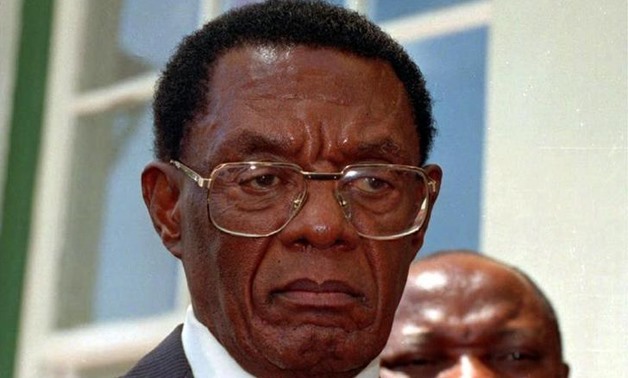
The President of the embattled homeland of Bophuthatswanna, Lucas Mangope. File.
JOHANNESBURG - 19 January 2018: Lucas Mangope, a leader of one of South Africa's tribal homelands who resisted the end of apartheid, died on Thursday at the age of 94, local media reported on Friday.
Mangope was president from 1977 to 1994 of Bophuthatswana, one of South Africa's "self-governing" homelands, or bantustans - fragmented islands of rural poverty where most black South Africans were literally confined under white rule.
During the often-tense negotiations that paved the way to majority rule in 1994, Mangope maintained that Bophuthatswana would remain independent. He was ousted in a coup weeks before the elections that brought Nelson Mandela to power.
"I spoke to him (Mangope) on a number of occasions urging him to let his people decide, but he would not listen," Mandela wrote in his autobiography "Long Walk to Freedom."
The ruling African National Congress extended its condolences on his passing while noting in a statement that Mangope was "an outspoken opponent of the democratisation project in South Africa."
Mangope invited investors to Bophuthatswana and the gambling resort Sun City - a flashpoint for anti-apartheid protests - was established there, skirting the ban on casinos imposed by the socially conservative National Party in South Africa.
Tribal leaders still hold away in the former homelands, exercising what critics say is almost feudal control over impoverished rural populations.
Much of Bophuthatswana and other homelands lie over the world's richest platinum reserves, and producers of the precious metal have had to strike deals with tribal leaders, which have often come unstuck, threatening production. Under apartheid, Pretoria maintained the fiction that the homelands were independent states as justification for denying black South Africans the vote, while the mining and other industries used them as sources of cheap, migrant labour.
Comments
Leave a Comment